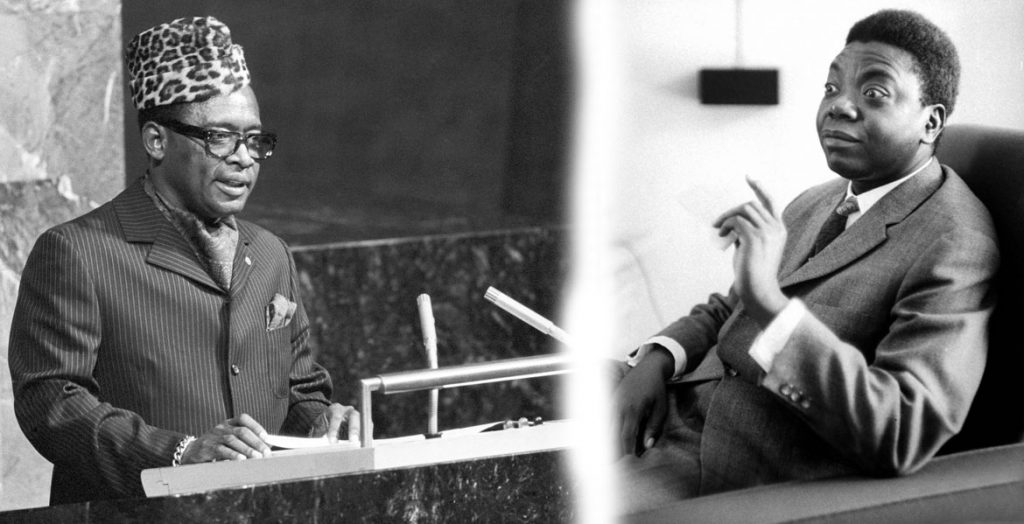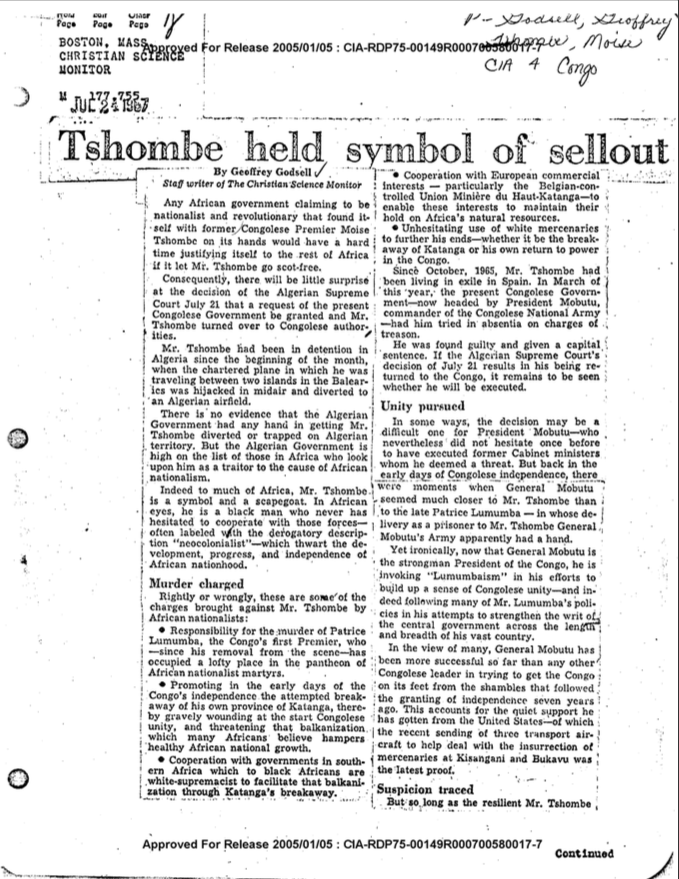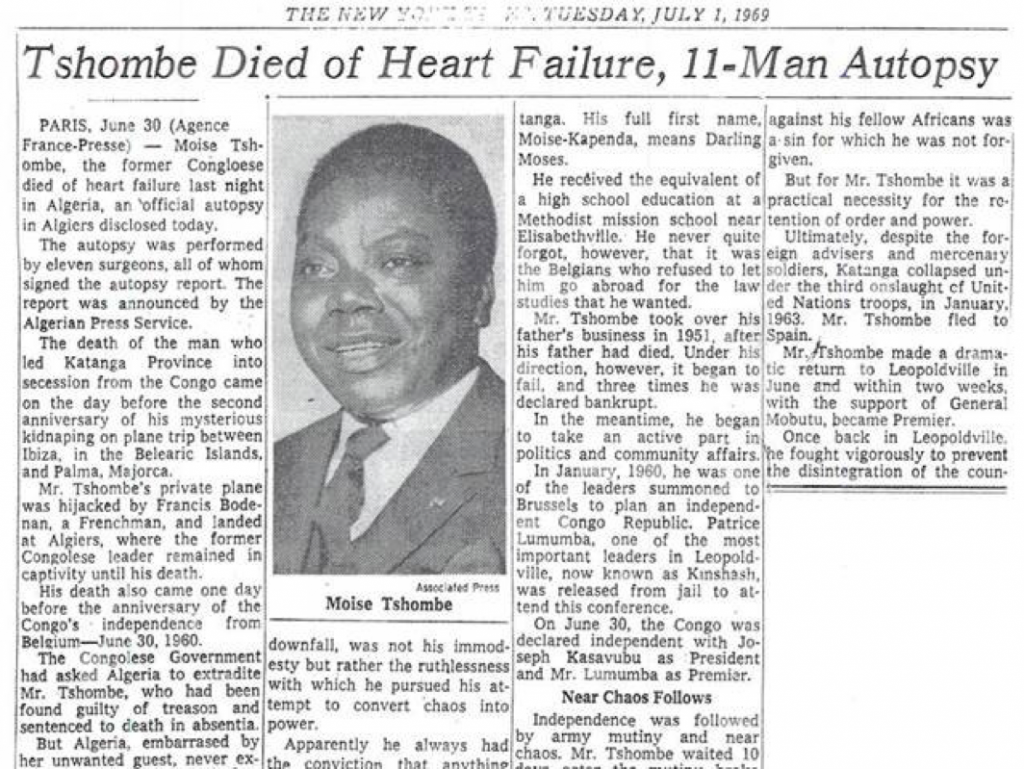ARTE, “Alger: La Mecque des révolutionnaires”, 2017
We have spoken about a crime against humanity and a crime against Africa, what he (Tshombe) did in Congo, the interests he served there, and the assassination of Lumumba and other Congolese compatriots means that we consider Tshombe as someone who is responsible and thus there is a need for justice, the justice of his people clearly but also the justice of all Africans and all of the progressive world
– M’hamed Yazid
Following the continual struggles for power that remained in Congo after the death of Lumumba and the reunification of Katanga from its short lived secession, it became clear that Colonel Mobutu had his eyes glued to the very top seat of power, and was willing to do anything to get there. In the months following the murder of Lumumba and the recognition of the United Nations, Mobutu moved swiftly to put himself in strategic positions that would best place him for an eventual assault on complete power, and De Witte argues that actions such as the promotion of President Kaza-Vubu within the army only served as further evidence of this (De Witte, 2002). The loser from this alliance was indeed Moïse Tshombe, who’s secession would eventually be defeated by Mobutu with the aid of United Nations forces which led to his exile, where he was accepted in Franco’s Spain. As the province of Katanga began its reconciliation process and national elections recommenced following internal skirmishes between rebels loyal to the ideas espoused by the late Patrice Lumumba and those loyal to President Kaza-Vubu and Colonel Mobutu, another political stalemate would soon follow despite the return of Tshombe, ultimately leading Mobutu to seize his chance to gain absolute power and control of the Congo through a bloodless coup based on emergency powers. Again, the growth of Mobutu’s political status posed great danger to Tshombe, who having previously returned from exile was once again forced out of Congo to Franco’s Spain, with Mobutu eventually charging Tshombe with death in abstenia (Gibbs, 1991).
In coherence with the general history of the Congo Crisis, this power struggle was not simply fought between two actors, but each were backed by external forces and interest groups, and these forces would go on to clash on foreign territory, that of Boumediene’s Algeria. Tshombe, upon boarding a flight supposedly “heading to Africa” in the words of Congo’s government, found his plane diverted to Algiers where he was immediately placed under house arrest by the Algerian police, under orders from Boumediene. Whilst many theories have been presented on the perpetrators of this hijacked plane, much of the evidences put forward tend to suggest that this diverted plane was done so on the orders of Mobutu, with the aid of the CIA and France (Arte, 2017; Byrne, 2016).
This would be the final stop for Tshombe, and despite Mobutu’s attempts at securing his return to Congo so he could face an extradition trial, Boumediene’s government, still with Lumumba’s legacy and friendship fresh in the mind, had other ideas and refused to extradite him and rather left Tshombe under house arrest in a modest house in Algiers, where he would die suffering from a heart attack in 1969. The quote found at the top of this essay made by M’hamed Yazid, Algeria’s representative alongside Frantz Fanon answering Lumumba’s call to Leopoldville at the Inter-African Conference of 1960, provides justification for Algeria’s action, and again only serves to emphasis how the Congo Crisis was so much more than merely being an internal affair, but rather one which held influence all over the globe, as shown eloquently in Sapin’s painting.
The detaining of Tshombe was a symbolic one in the history of theCongo Crisis, for two major reasons. One it highlighted the so called “victory” one could say of Colonel Mobutu, who had not only outlasted his opponents but had gone as far as to eliminate all of them, whilst receiving backing from the West which he would use to legitimise his legacy. The second major symbol to come from Tshombe’s arrest and death would be the affirmation of Fanon’s great fear, and what Lumumba sought so strongly to fight against, those from within who would go on to “betray” their people and destabilise the decolonisation process under support from the enemy. The word Tshombe today has become synonymous with the act of selling out, and even still used today in languages such as Shona where the word “chombe” literally means “sellout” (Moyo, 2008).
CIA-RDP75-00149R000700580017-7




